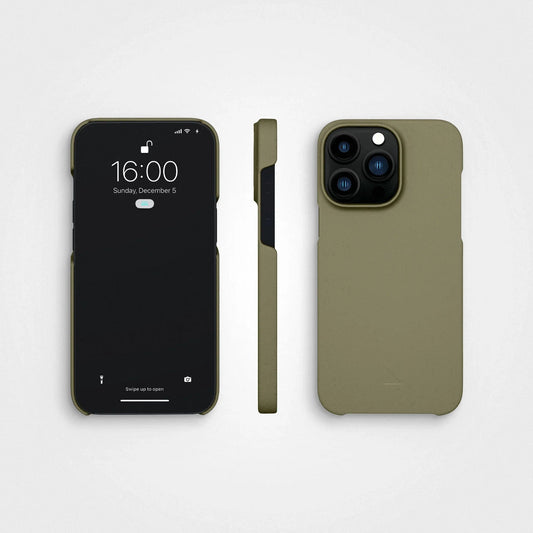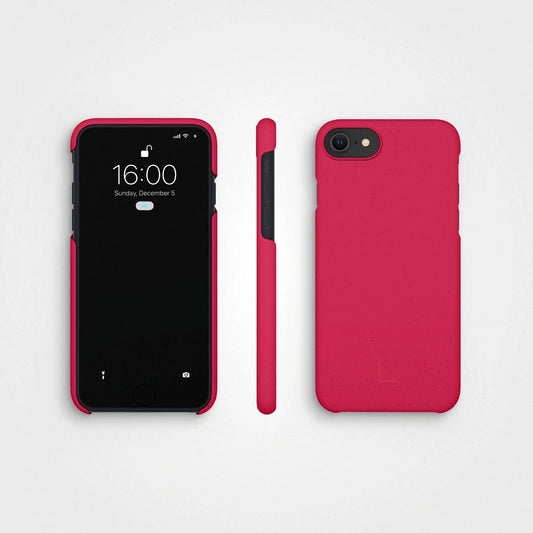In today's rapidly evolving world of materials science and industry, synthetic thermoplastic stands as a versatile and widely utilised class of polymers. These remarkable materials have carved a niche for themselves across various sectors, playing a pivotal role in shaping modern manufacturing processes and product designs. While their exceptional characteristics have earned them a prominent place in numerous applications, it is crucial to shed light on the potential environmental implications they pose.
Definition of Synthetic Thermoplastic

At its core, synthetic thermoplastic refers to a group of polymers that possess the unique ability to soften upon heating and solidify upon cooling, allowing for ease of moulding and reshaping. Composed of long chains of repeating units, these plastics exhibit remarkable traits such as remarkable durability, exceptional flexibility, and a propensity for easy moldability. Unlike other plastics, synthetic thermoplastics can be reprocessed multiple times without undergoing significant degradation, making them highly desirable for various manufacturing needs.
However, alongside their countless advantages, synthetic thermoplastics carry an inherent negative aspect that warrants our attention. One of the most pressing concerns pertains to their environmental impact. Due to their non-biodegradable nature and prolonged degradation periods, these plastics contribute significantly to the ever-growing issue of plastic pollution. As they persist in the environment for extended periods, they can infiltrate ecosystems, harm wildlife, and disrupt delicate ecological balances.
Distinguishing Characteristics and Versatility
What sets synthetic thermoplastic apart from its counterparts is its exceptional range of characteristics, each catering to diverse industrial requirements. From the automotive sector, where its resilience ensures safety, to the packaging industry, where its moldability guarantees efficient storage solutions, synthetic thermoplastic's versatility is unrivalled. Its unique combination of strength, flexibility, and formability has revolutionised manufacturing, enabling the creation of intricately designed components and products. As industries continue to harness the power of synthetic thermoplastic for innovative solutions, it becomes increasingly paramount to strike a delicate balance between convenience and environmental responsibility. While these plastics enhance our daily lives with their functionality and performance, it is imperative to acknowledge the consequences of their widespread use. This awareness underscores the importance of exploring alternative materials and sustainable practices that can mitigate the adverse effects associated with synthetic thermoplastic.
In the upcoming sections of this blog post, we will delve deeper into the world of synthetic thermoplastic. We will explore its various applications across industries, with a particular focus on its influence within the mobile case industry. Additionally, we will scrutinise the environmental impact of synthetic thermoplastic, shedding light on its implications for both the mobile case sector and the planet as a whole. By the end, we hope to provide you with a comprehensive understanding of the multifaceted nature of synthetic thermoplastic and encourage thoughtful considerations about its role in our lives and its broader consequences.
Applications of synthetic thermoplastic across Industries

Synthetic thermoplastic's remarkable versatility has propelled it into a position of prominence across a spectrum of industries. Its adaptability and unique characteristics have spurred innovation, revolutionised manufacturing processes, and contributed to the enhancement of products in various sectors.
- Automotive Industry: Synthetic thermoplastic has found a significant role in the automotive sector, where its durability and resistance to impact make it an ideal choice for components such as bumpers, interior panels, and under-the-hood parts. Its lightweight nature aids in fuel efficiency, and its ability to withstand harsh environmental conditions ensures the longevity of automotive components.
- Packaging Solutions: In the realm of packaging, synthetic thermoplastic has redefined the way products are stored and transported. Its moldability allows for the creation of intricate packaging designs, ensuring efficient use of space and enhanced protection for goods. Whether it's food packaging, consumer electronics, or industrial products, these plastics offer durability and product preservation.
- Electronics and Technology: The electronics industry has harnessed the capabilities of synthetic thermoplastic to create sleek and functional devices. These plastics provide insulation, heat resistance, and mechanical support for delicate electronic components. From smartphone casings to intricate connectors, synthetic thermoplastic contributes to the sleek designs and structural integrity of modern gadgets.
- Medical Devices and Healthcare: Synthetic thermoplastic plays a vital role in the production of medical devices and equipment. Its biocompatibility, resistance to chemicals, and ease of sterilization make it an essential choice for items like syringes, IV tubes, and surgical instruments. Its application in healthcare underscores its critical importance in maintaining hygiene and patient safety.
Environmental Implications of Synthetic Thermoplastic

While synthetic thermoplastic offers a wide array of benefits and applications, it is essential to confront the environmental concerns associated with its use. These concerns primarily revolve around its non-biodegradability and the significant contribution it makes to plastic waste and pollution.
Non-Biodegradability and Prolonged Degradation Periods
One of the most glaring drawbacks of synthetic thermoplastic is its resistance to natural degradation processes. Unlike organic materials, these plastics do not readily break down into harmless components when exposed to environmental factors such as sunlight, moisture, and microbial activity. As a result, discarded synthetic thermoplastic items persist in the environment for years, if not centuries, contributing to the growing issue of plastic pollution.
Accumulation of Plastic Waste
The widespread use of synthetic thermoplastic across industries has led to a significant accumulation of plastic waste. Disposed of improperly or inadequately managed, these plastics find their way into landfills, water bodies, and ecosystems. This accumulation not only poses a visual blight but also has far-reaching consequences for the health of ecosystems, wildlife, and even human populations.
Pollution and Ecological Impact
As synthetic thermoplastic items break down into smaller particles known as microplastics, they enter various ecosystems and waterways. Microplastics have been found in marine environments, freshwater bodies, and even the air we breathe. Marine life, mistaking these particles for food, ingest them, leading to potential bioaccumulation and the transfer of harmful chemicals up the food chain. The pollution caused by synthetic thermoplastic has a cascading effect on aquatic and terrestrial ecosystems, disrupting delicate balances and threatening biodiversity.
Challenges in Recycling
While recycling presents a promising avenue for managing plastic waste, synthetic thermoplastic poses challenges in this regard. Variations in polymer compositions and additives make it difficult to create a streamlined recycling process. Moreover, recycling rates for plastics, including synthetic thermoplastics, remain relatively low due to infrastructure limitations, consumer behaviour, and economic factors. It's worth noting that some products that you may think are recyclable might not be accepted by recycling facilities, contributing to the complexity of the issue.
As the mobile case industry relies on synthetic thermoplastic for its products, it's crucial to consider the broader environmental ramifications. The convenience and aesthetic appeal offered by these cases come at a cost, as improper disposal and lack of recycling options exacerbate the plastic waste crisis.
In the next section, we will delve into the specific impact of synthetic thermoplastic within the mobile case industry. By examining its influence on design trends, consumer behaviour, and the overall environmental footprint, we hope to provide a comprehensive perspective on the balance between innovation and responsible consumption.
Environmental concerns of Mobile case production
As we zoom in on the mobile case industry, it becomes evident that the proliferation of synthetic thermoplastic has both positive and negative implications for the environment. While these cases offer sleek designs, protection, and customization options, their production contributes to several environmental challenges.
- Environmental Impact of Manufacturing: The production of synthetic thermoplastic mobile cases requires raw materials, energy, and resources. Extracting and processing these resources can result in carbon emissions, energy consumption, and ecological disruption. Additionally, the manufacturing process itself may release pollutants and waste, contributing to air and water pollution.
- Plastic Waste Accumulation: Mobile cases, often considered disposable accessories, contribute to the accumulation of plastic waste. Discarded cases, made from non-biodegradable synthetic thermoplastic, end up in landfills or improperly managed waste streams. This further exacerbates the global plastic waste crisis, with potential consequences for ecosystems, wildlife, and human health.
- Recycling Challenges: Recycling mobile cases made from synthetic thermoplastic presents its own set of challenges. The diversity of plastics used, coupled with the integration of other materials like metal or rubber, complicates the recycling process. Limited awareness, inadequate infrastructure, and lack of standardised collection systems hinder effective recycling efforts, leading to a significant portion of mobile cases ending up as waste.
Eco-Friendly Alternatives and Innovations

Amidst the concerns surrounding synthetic thermoplastic's environmental impact, the search for sustainable alternatives has gained momentum. As consumers increasingly demand products that align with their eco-conscious values, industries are responding with innovative solutions that prioritise both functionality and the well-being of our planet.
"agood Company," a torchbearer of sustainable products, presents innovative solutions in the face of synthetic thermoplastic's environmental concerns. Leading the charge, the company offers plant-based mobile cases that decompose naturally, recycled glass screen protectors diverting glass waste, and phone wallets crafted from recycled PET and nylon. These choices not only safeguard devices but also embrace a circular economy mindset, showing fashion and ethics can harmonise.
The company's commitment extends beyond sustainable materials – ethical sourcing, renewable energy, and responsible manufacturing underscore their dedication. As consumers, our choices resonate beyond mere products, echoing a call for conscious consumption. "agood company" exemplifies the potential to create a more sustainable future, urging us all to make thoughtful decisions that catalyse positive change.
Conclusion
In our exploration of synthetic thermoplastic's role in various industries, including the mobile case sector, we've uncovered a multifaceted narrative that underscores the importance of balancing innovation and environmental responsibility. The versatility and significance of synthetic thermoplastic cannot be denied – they have propelled industries forward, revolutionising manufacturing, and enhancing consumer experiences.However, this progress comes with a profound responsibility to mitigate the negative consequences of our choices. The delicate balance between utility and environmental responsibility requires careful consideration, both from manufacturers and consumers alike. It's crucial to recognize that the convenience and allure of products like synthetic thermoplastic mobile cases come hand in hand with ethical considerations.As consumers, we hold the power to drive change through conscious choices. By supporting brands that prioritise sustainable practices, recycling efforts, and eco-friendly materials, we can collectively influence the trajectory of industries and promote a more sustainable future. While synthetic thermoplastic has a vital role to play in our modern world, it's essential to remember that our actions today shape the world we leave for generations to come.
In the journey toward a greener tomorrow, let us be mindful of the intricate relationship between progress and environmental stewardship. By embracing sustainable alternatives, advocating for responsible production, and making informed decisions, we can pave the way for a more harmonious coexistence between innovation, convenience, and the well-being of our planet.



























